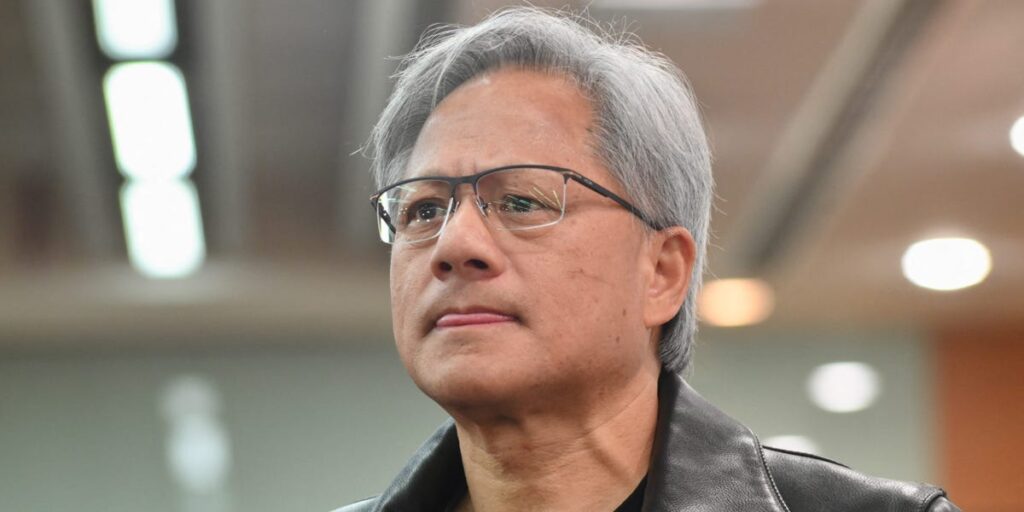Nvidia is entering what may be its most acquisitive summer yet.
According to official figures, the company has four deals in the pipeline through 2024, exactly the same as Nvidia’s total for 2020. However, some of this year’s deals have yet to be finalized, in part due to regulatory scrutiny.
Nvidia, along with Microsoft and OpenAI, is the subject of investigations by the Department of Justice and the Federal Trade Commission for possible antitrust violations.
Nvidia declined to discuss its acquisition strategy in this report, citing the quiet period before it reports earnings on Aug. 28. It also declined to confirm how many deals it has made this year or whether it is in fact tying 2020 for the most so far.
This year has been remarkable, and not just because of the global disruption caused by the pandemic and the subsequent surprising economic recovery. In April 2020, Nvidia acquired Mellanox for $6.9 billion. The Israeli networking company has been touted as a key player in the AI data center strategy as we know it. Then, in September 2020, Nvidia announced an ill-fated deal to buy chip designer ARM from SoftBank for $40 billion. The parties unraveled the deal in February 2022, citing regulatory interference.
Nvidia’s latest deal isn’t necessarily as high-profile as those, but it’s still worth noting because the company has seemingly limitless resources and is firmly established as a foundation of the AI ecosystem.
View deals
Nvidia agreed to acquire Israeli company Run:ai in April, but the deal has not yet closed and is under investigation by the Department of Justice, according to Politico. Run:ai’s technology makes GPUs more efficient at calculating data, allowing them to do more work with fewer chips.
In May, Nvidia agreed to acquire Deci AI, an Israeli startup that makes tools to help developers build AI models, for $300 million.
A few months later, in July, investors in California company Shoreline confirmed that Nvidia would acquire the company, which uses automation to reduce and respond to service-disruption incidents in cloud computing.
In late July, NVIDIA acquired Brev.dev, a small San Francisco team that aims to lower the barrier to entry for AI development. The two companies have been working together for about 11 months, according to a video posted on LinkedIn by founder Nader Khalil. The deal was paid for an undisclosed sum that is likely far below the amount that would normally attract regulatory scrutiny.
While the company isn’t keen to publicly discuss its strategy, NVIDIA executives have recently offered some hints at what the company is aiming for.
“Small- to mid-size M&A is always an area we look at. We’re looking closely at those types of companies that we think can help us scale our business,” Chief Financial Officer Colette Kress said at Citi Global’s 2023 technology conference. At a separate investor conference around the same time, Kress said the company was unlikely to find an acquisition deal as significant as Mellanox, but would look for smaller companies with additive manufacturing technologies.
It’s slow and quiet now, but it’s still going on
AI industry watchers and investors told Business Insider that acquisitions have slowed among big tech companies under scrutiny from the Department of Justice and the FTC, but smaller deals are still happening, as well as larger ones.
In June, Amazon hired most of the team from Adept, a company with an underlying model aimed at competing with OpenAI, and licensed the company’s technology in a move commonly referred to as a “reverse acquisition.”
In July, Nvidia rival AMD announced a deal to acquire Finnish AI startup Silo AI for $655 million.
And with the market for AI talent so tight, the quiet trickle of deals in various forms is unlikely to stop anytime soon.
“Today, AI engineers can make anywhere from $200,000 to $800,000 a year,” says Paul Beyer, CEO of GAI Insights — and that’s if you can find them.
Hiring by acquisition is a common solution in these situations. “If you buy a failed AI startup and hire, it’s going to cost you $4 million per engineer, which shows how scarce this talent is,” Baier continued.
Despite increased regulatory attention, buy-to-hire deals are on the rise, driven by high valuations for startups that raised money during the AI boom, plus a severe talent shortage, said Umesh Pavdar, managing director at Tomvest.
Have a tip or insight to share? Contact senior reporter Emma Cosgrove at ecosgrove@businessinsider.com or use secure messaging app Signal at 443-333-9088.

